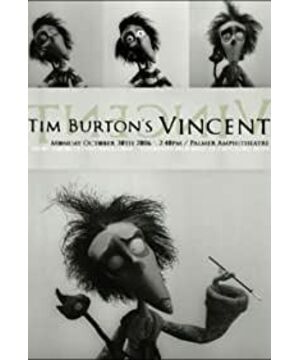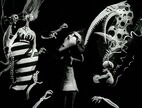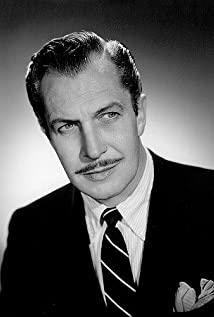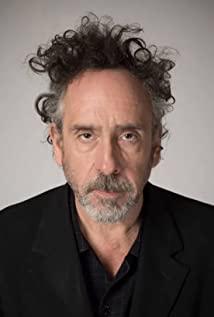"Never again..."
Vincent is dead. This is carefully designed by Tim Burton. He has been sick for many years, isolated from the world, weak and pale, coupled with inner fear and exhausted, his death is inevitable. of. And what caused his death? We can't help thinking. The child is well-behaved and obedient, but he yearns for Poe-like horror in his heart, with silence that does not belong to his age. Therefore, Vincent's character is more autistic and more extreme. It seems to be the shackles of reality and the closed contradictions that are immersed in the self-world and cannot be extricated. It tells the tragedy of a secondary autistic teenager; but careful analysis: he is more like Tim Burton’s autobiography. Indeed, Burton He was good at this since he was a child, but the adult world contained him and caused his childhood isolation and loneliness. Later, when he lived at his grandfather's house, the director's genius was not stifled. I think Vincent's "autism" is not necessarily born with him. It is precisely the blind containment and incomprehension of his relatives that kept him closed... It is the "shell" of the outside world that drives this boy to death step by step.
His death is more representative of the death of fantasy, the death of innocence, because in reality it is impossible for children to die like this. In fact, every child may have their own neverland. With the pace of growth and the depression of the adult world, they will eventually bid farewell to Neverland. Unless you keep your childish innocence forever, the never homeland strangled by reality will never be found again.
Digging into its essence, what Tim Burton discussed with us is ultimately the contradiction between children's innocence and reality.
(It's all our humble opinion, please forgive me.)
View more about Vincent reviews








